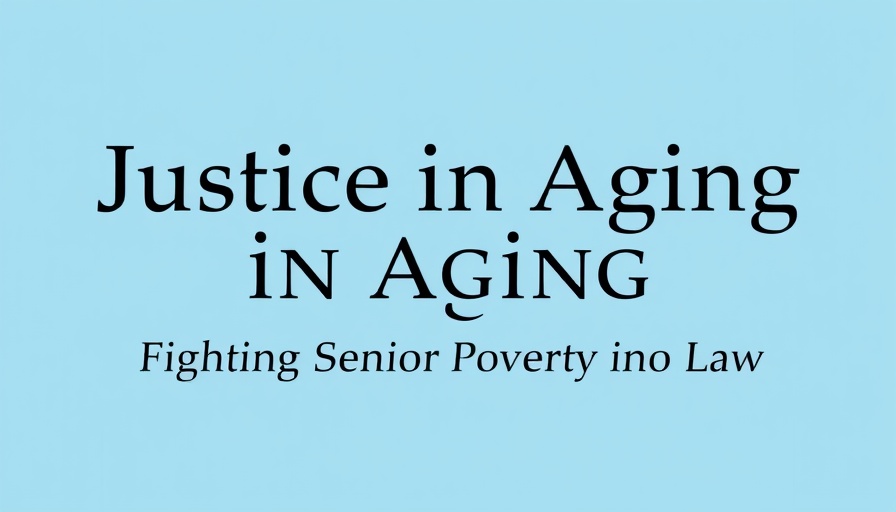
Understanding the Crucial Role of Medicaid for Seniors
Medicaid is more than just a safety net for older adults; it represents a critical lifeline for many individuals who depend on it for essential health care and long-term services. As Congress considers proposals to cap federal funding for Medicaid, it is vital to understand the potential ramifications of such changes, particularly for the elderly population. More than seven million older Americans use Medicaid each year, and a significant portion relies on it for critical long-term care that Medicare does not cover.
The Implications of Proposed Medicaid Funding Caps
The potential introduction of funding caps, including block grants and per capita caps, poses serious risks to the Medicaid program. These caps would limit the amount of federal financial support states receive, forcing them to bear an increased burden during times of rising healthcare costs and an aging population. Such restrictions could lead to reduced enrollment, cutbacks in services, and even greater barriers to access vital care.
Block Grants vs. Per Capita Caps: What Do They Mean for Seniors?
Proposals for block grants would require states to manage a fixed sum of money, dictating how they distribute funds for Medicaid services. This model risks prioritizing fiscal restrictions over medical needs, potentially leading states to cut services for vulnerable populations. Similarly, per capita caps would impose limits on federal funding based on the number of enrollees, which could shift unforeseen costs back to the states—outcome that is especially harmful to older adults with more complex health needs.
The Realities of Rising Healthcare Needs Among Seniors
Given the increasing number of individuals aged 65 and older, the healthcare needs of older adults are expected to escalate. With the aging process often comes an increase in chronic conditions that require long-term care services. Unfortunately, funding caps do not account for this demographic shift and could lead to a system wherein the healthcare needs of older adults exceed available resources.
Why Medicaid Flexibility May Not Benefit Seniors
Advocates of Medicaid reform often suggest that granting states more flexibility will lead to more innovative care solutions. However, the reality can be starkly different. With fiscal pressures mounting, this flexibility could result in states benefiting financially while simultaneously restricting access to essential health services. If funding is limited, states may choose to limit eligibility criteria, compromising access for the very individuals who need it most.
Historical Context: The Evolution of Medicaid
Medicaid has evolved over the past sixty years to reflect the changing needs of the American populace, particularly seniors and individuals with disabilities. This historical lens emphasizes how the program has served as an essential resource for the most vulnerable citizens. Understanding this context is vital, as it serves as a reminder of the potential consequences of repealing or rolling back these hard-won protections.
The Emotional Toll on Older Adults and Their Families
The potential cuts to Medicaid funding can have significant emotional and physical impacts on seniors and their families. Consider the anxiety and fear that arise from the prospect of losing access to necessary services. Many older adults rely on Medicaid not only for medical care but also for a sense of dignity and independence. Cutting these services could force vulnerable individuals into undesirable institutional settings, adding to the emotional strain experienced by families.
What Can Be Done: Advocating for Continued Support
As the discussion around Medicaid funding capping unfolds, it's important for seniors, caregivers, and advocates to remain vigilant. Engaging with lawmakers, spreading awareness about the importance of Medicaid, and advocating for the protection of vital services can make a difference in ensuring that older Americans continue to receive the support they need.
Conclusion: The Case Against Medicaid Caps
The proposals to cap Medicaid funding come with significant risks, especially for older adults who depend on the program for essential health and long-term care. Implementing these caps threatens to erode the fundamental protections established over decades. It’s crucial to understand that real health care is more than just numbers; it embodies the lives of millions of Americans who deserve comprehensive care, dignity, and respect in their later years. As advocates, it's imperative to push back against such harmful proposals.
 Add Row
Add Row  Add
Add 


 Add Row
Add Row  Add
Add 

Write A Comment